- Minds x Machines
- Posts
- The Ridiculous-Sounding Jobs of the AI Future
The Ridiculous-Sounding Jobs of the AI Future
AI is changing your tasks—and inventing bizarre new roles in the process. Are you prepared for your weirdly inevitable promotion?
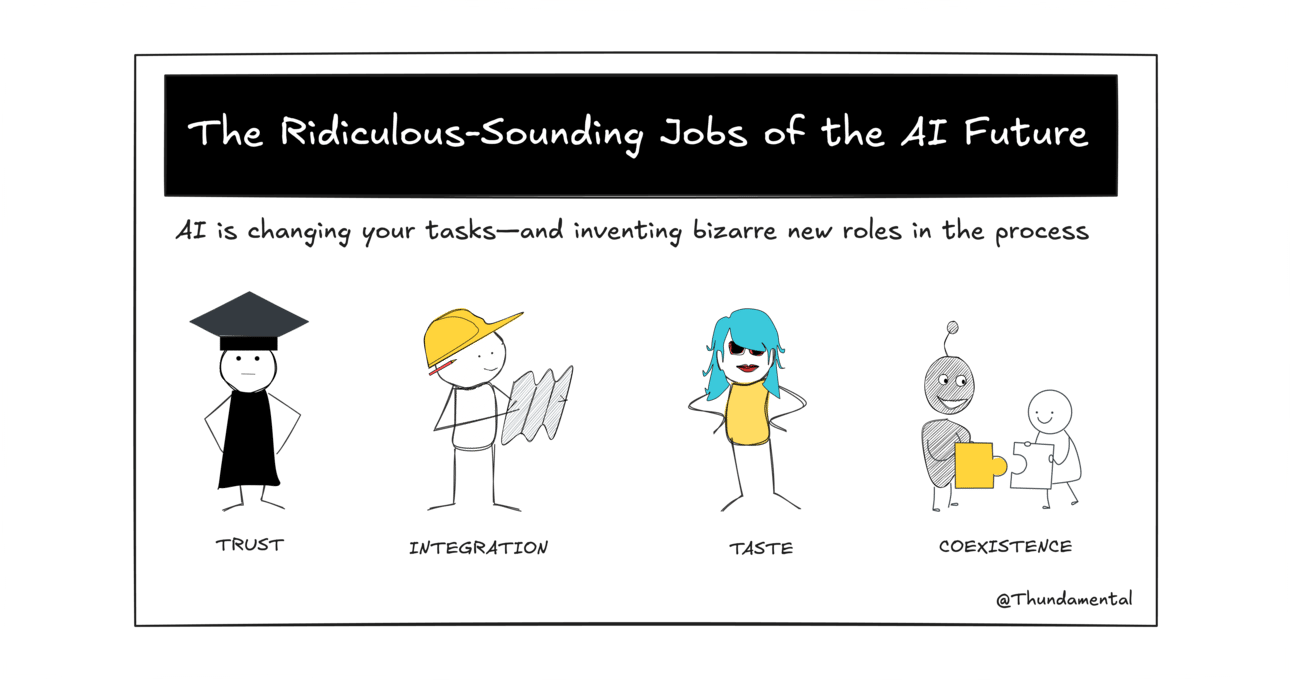
The Ridiculous-Sounding Jobs of the AI Future
AI is changing your tasks—and inventing bizarre new roles in the process. Are you prepared for your weirdly inevitable promotion?
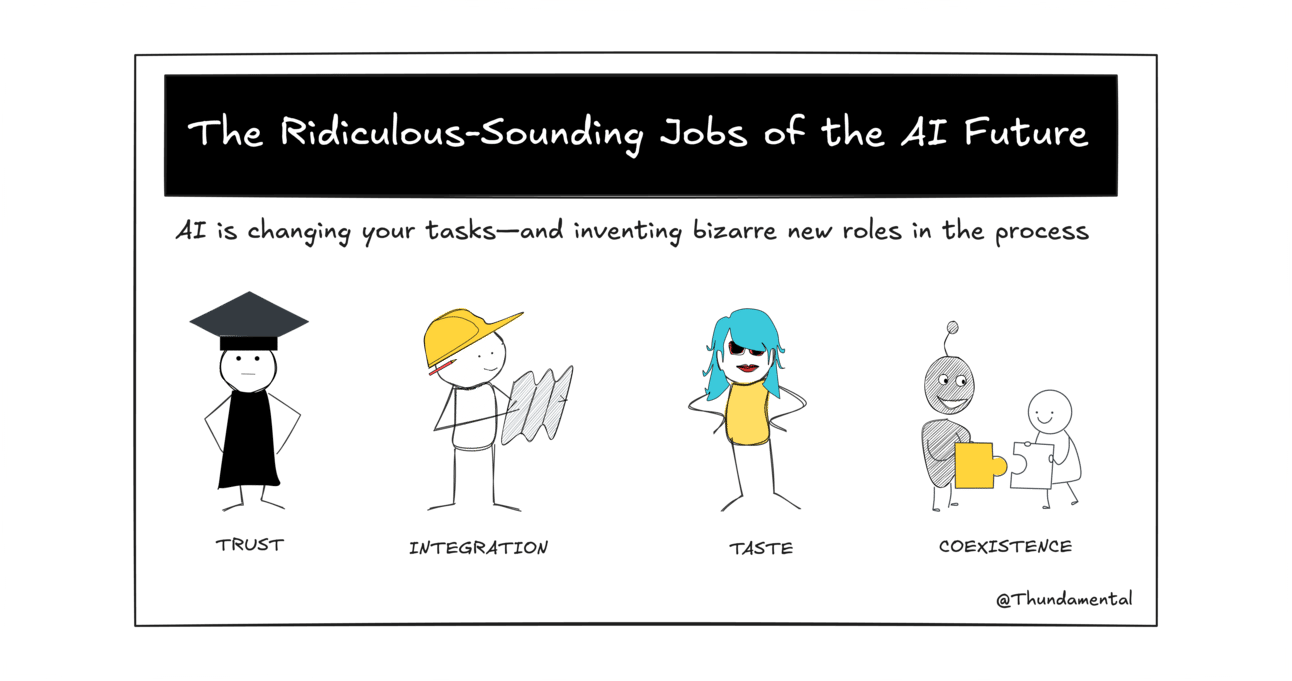
Here’s why becoming an AI Whisperer or Synthetic Content Sommelier isn’t just plausible—it might soon be essential.
Amazon CEO Andy Jassy recently said the quiet part out loud: "As we roll out more Generative AI and agents, it should change the way our work is done. We will need fewer people doing some of the jobs that are being done today, and more people doing other types of jobs."
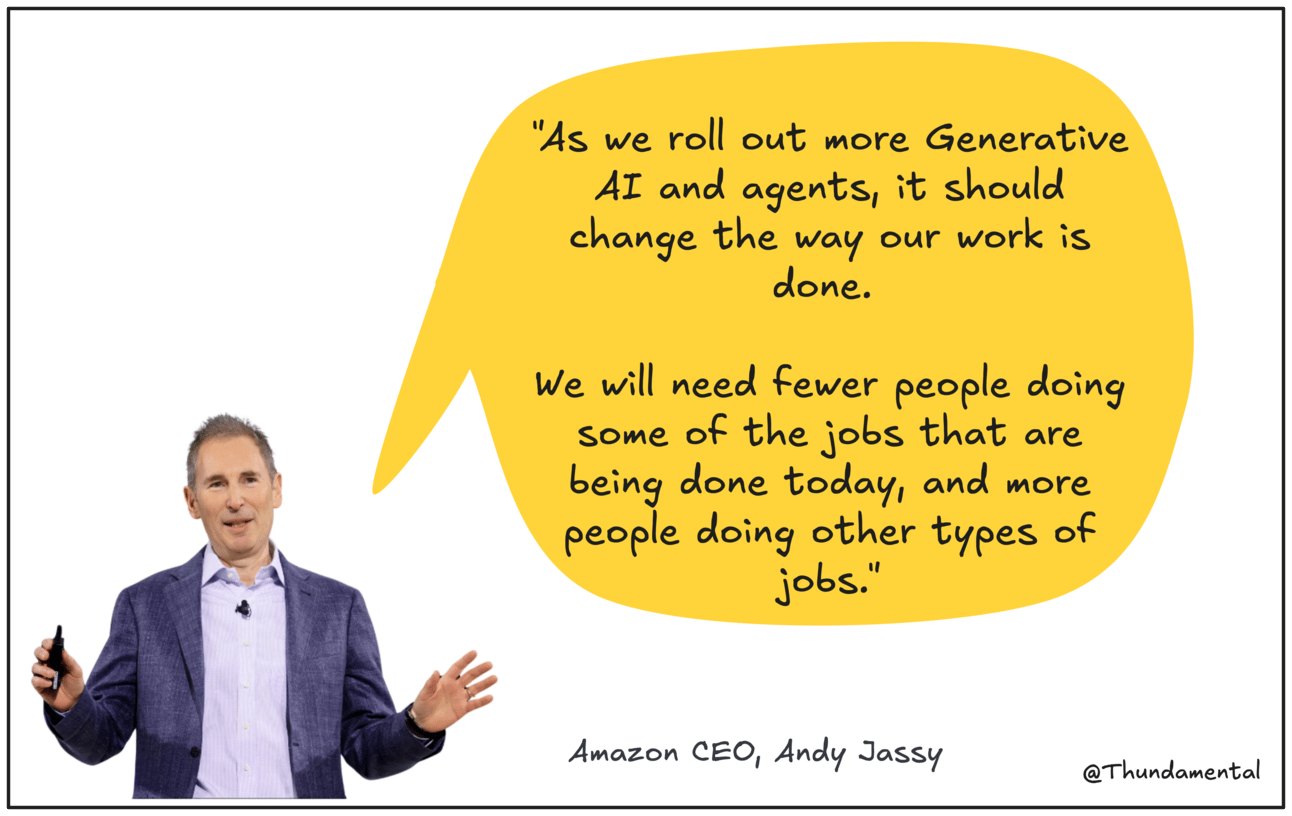
Translation?
Your job probably isn't disappearing entirely — but the way you do it definitely is. We're about to witness the most creative explosion of job titles since someone decided we needed "Chief Happiness Officers."
The Real Story: Mostly Tasks, Not Jobs (But Definitely New Job Titles)
Here's what most professionals still don't fully grasp: AI won't take your job wholesale — but it will absolutely take your tasks.
And then some consultant will invent 47 new job titles to describe what's left.
The repeatable, codifiable, and automatable parts of work are already moving to software. What remains — and grows in value — are the very things AI can't do well: judgment under uncertainty, legal accountability, strategic creativity, and social persuasion.
So your job doesn't disappear. It evolves — but only if you do. And by "evolve," we mean "learn to work with robots while pretending this is totally normal."
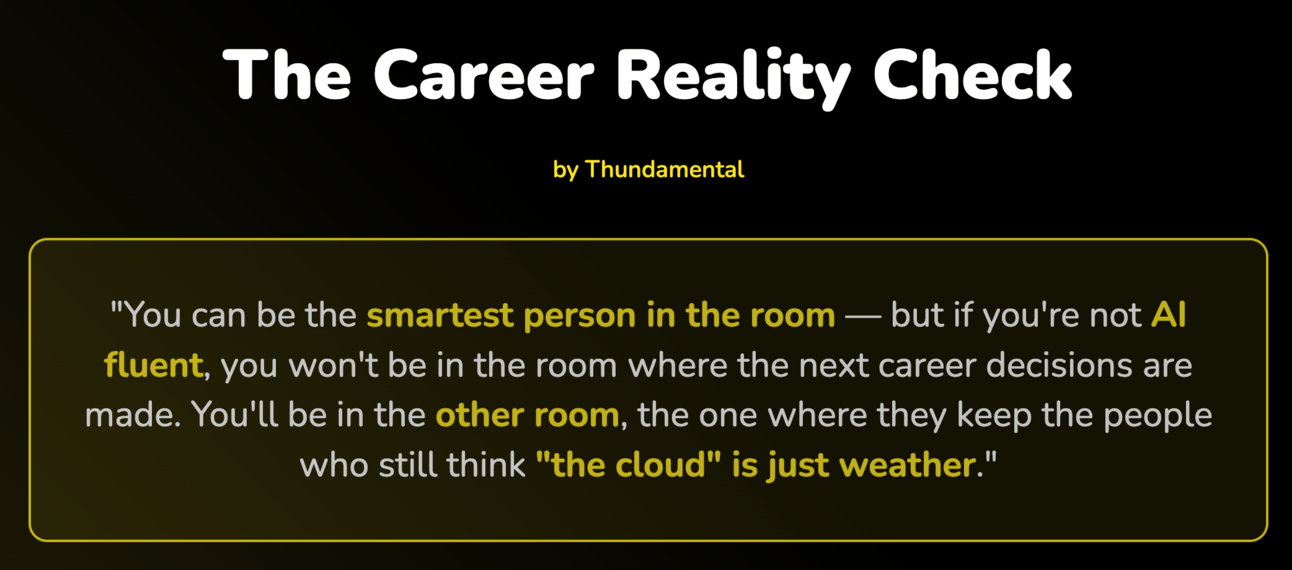
Welcome to Human-AI Collaboration (AKA: You're Now Middle Management for Machines)
AI thought leaders like Robert Caps from the New York Times, wrote an article: A.I. Might Take Your Job. Here Are 22 New Ones It Could Give You, and he identified three main areas where new opportunities are emerging: Trust, Integration, and Taste.
I read that and thought, "This is a good start, but there's got to be more."
So I went down the rabbit hole and added a fourth category: Coexistence — because managing human-AI collaboration is becoming its own specialised skill set.
Then I got carried away imagining what these roles might actually look like and created a few new ones, removed some I’m not loving. Some are already emerging, others are educated guesses, and a few are just me having fun thinking through how weird this is all going to get.
The goal? Help you think about how your work might evolve, with a few laughs along the way.
Check out the detailed article HERE.
Or, as we like to call it: "How to Stay Employed When Your Computer Gets Smarter Than You."
For a deeper look you can check out the full article:
TRUST — The Governance Layer
THE BLAME GAME — Someone's Got to Be Responsible
What happens when decision-making becomes opaque? When an algorithm denies your loan application or an AI system recommends medical treatment, someone must answer the ancient human question: "Who is responsible?"
Imagine emerging roles that didn't exist five years ago: professionals who spend their days excavating the logic buried in AI systems, translating algorithmic reasoning into human accountability. These aren't just technical jobs—they're philosophical ones, requiring people who can navigate the murky boundary between human judgment and machine inference.
Why It Matters: AI can't be held accountable for mistakes. But you can! Lucky you.
Key Emerging Roles:
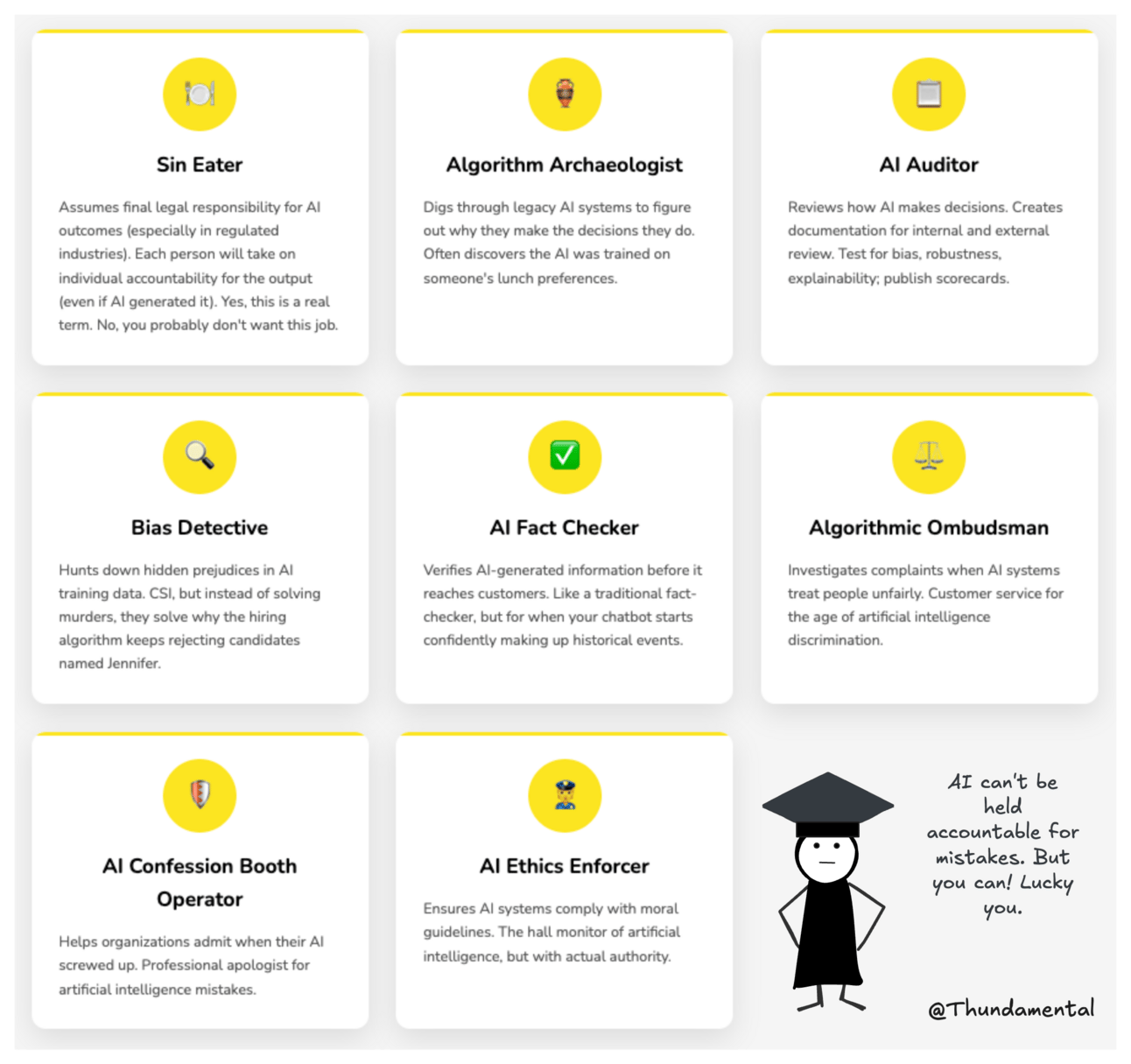
INTEGRATION — Making AI Actually Work
ROBOT WRANGLING — Making AI Actually Useful
Here's a paradox: as AI becomes more capable, the skill of working with AI becomes more complex, not simpler. It's like having an incredibly talented but alien colleague who speaks in mathematics and thinks in probabilities.
What might emerge are roles focused entirely on translation—not just between human and machine languages, but between human and machine ways of understanding the world. People who can feel when an AI system is subtly failing, who intuitively know which tasks to delegate and which to keep, who can orchestrate the dance between human creativity and machine precision.
Why It Matters: AI doesn't install or fix itself. These roles make sure the tools work — and that they stay useful, accurate, and aligned with real goals.
Key Emerging Roles:
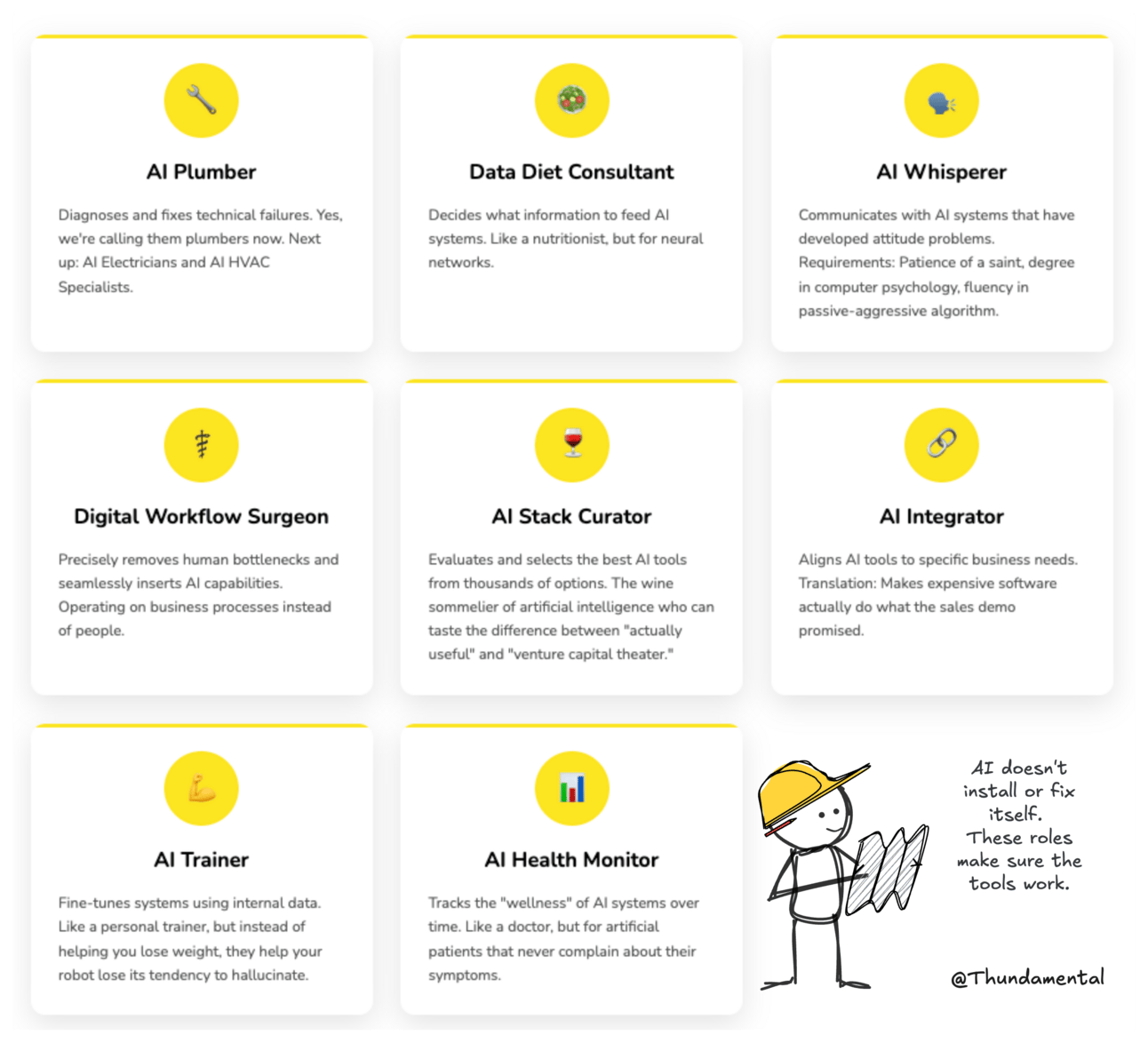
TASTE — The Curation of Meaning
THE TASTE MAKERS — When Style Becomes Strategy
AI can now write poetry, compose music, and generate art. But it struggles with a fundamentally human question: "What should exist?"
AI excels at optimization—making things faster, cheaper, more efficient. But humans excel at something else entirely: deciding what's worth optimizing for. We're the species that invented concepts like "beauty," "meaning," and "cultural significance." We decide not just what can be created, but what should be.
Why It Matters: AI can generate endless options — but only humans know what's worth making, sharing, or shipping. Taste is the new filter.
Key Emerging Roles:
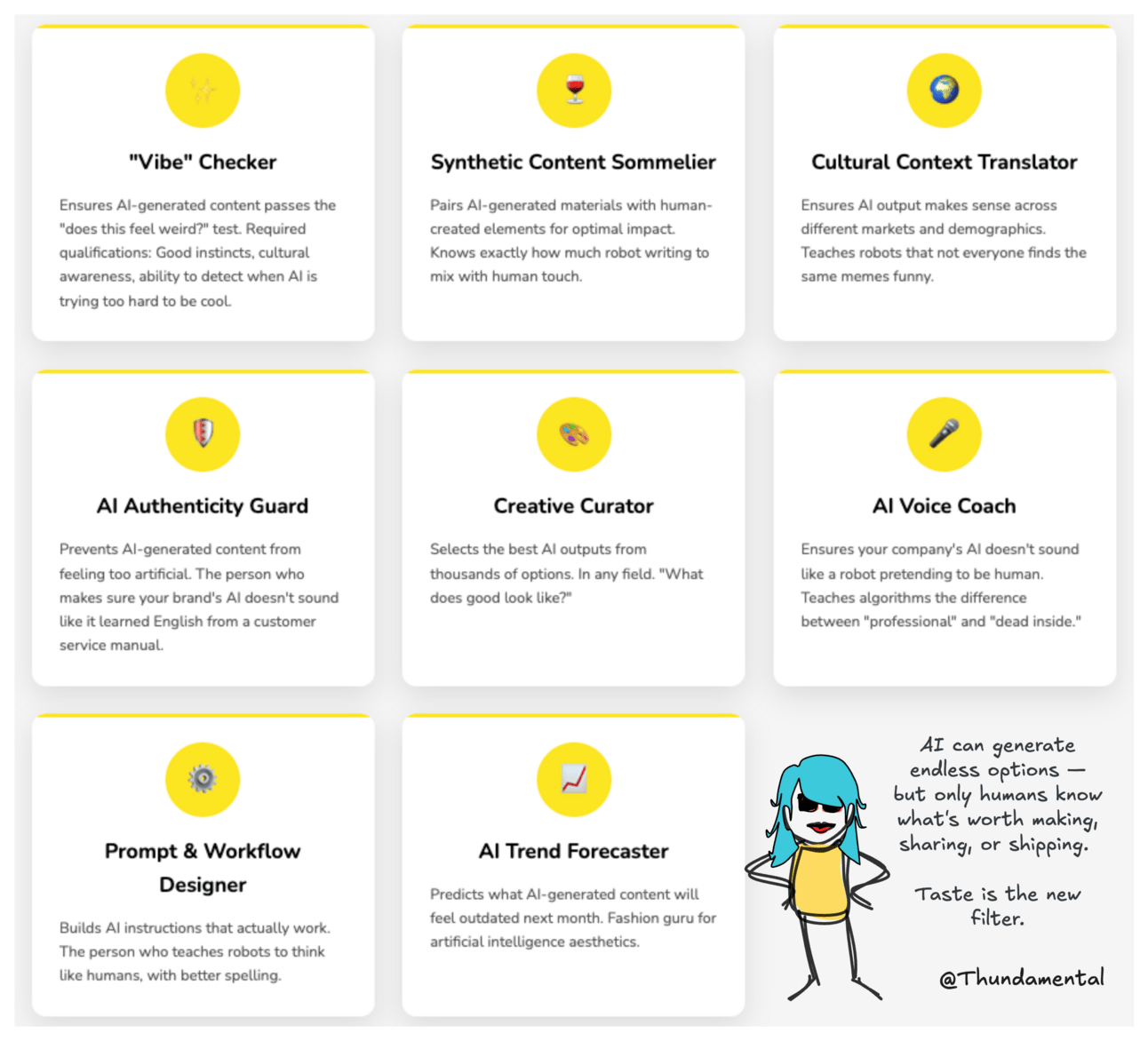
COEXISTENCE — Designing Human-AI Teams
OFFICE POLITICS 2.0 — Managing Your Artificial (and Human) Colleagues
This is about the social and organizational challenges of working alongside AI. How do you manage teams where half the members don't have feelings? How do you train people to work with systems that are smarter than them in some ways and dumber in others?
What It Means: Managing collaboration between people and AI. From workflow design to culture, these roles shape how humans and machines work together without anyone having a breakdown.
Key Emerging Roles:
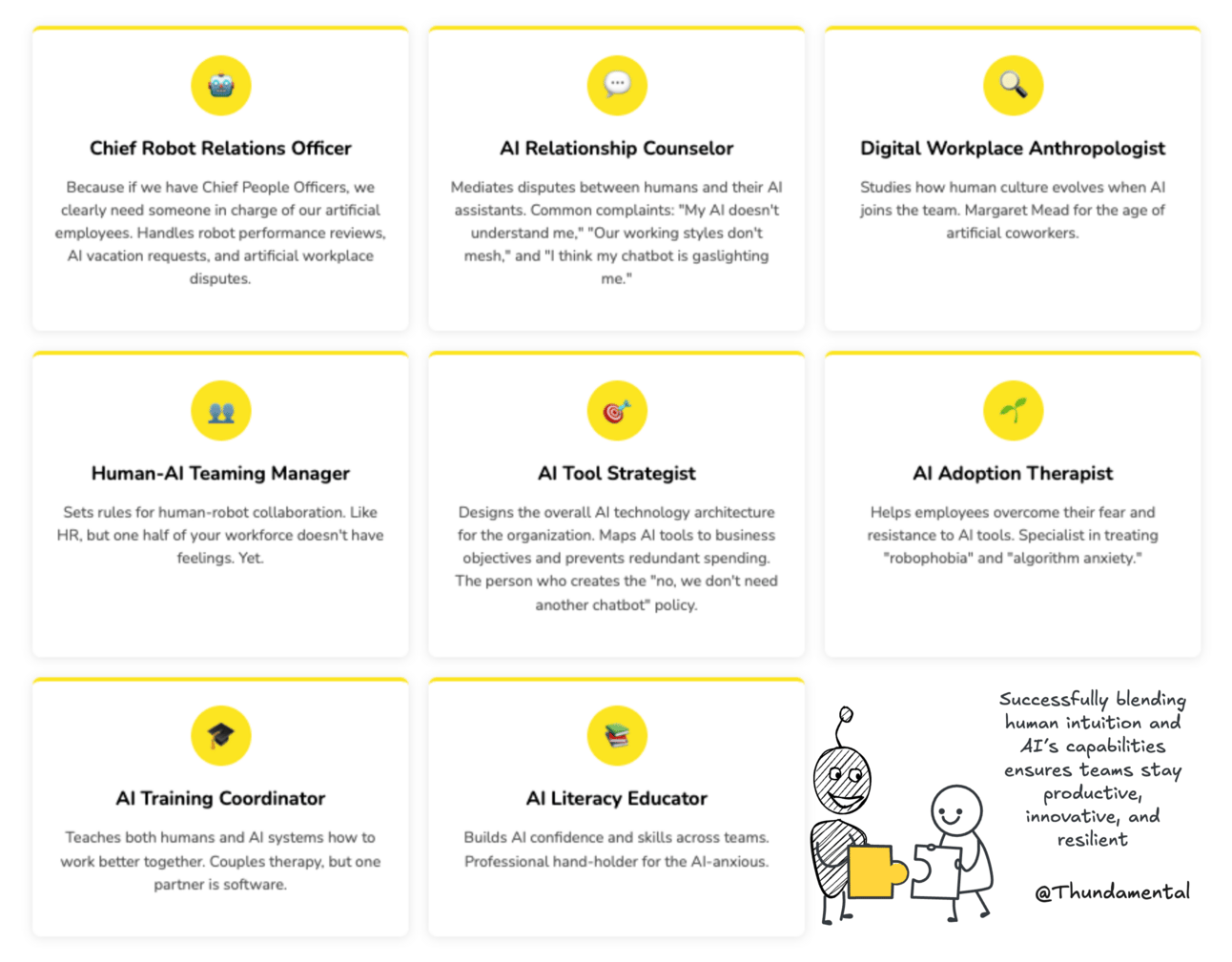
Your Career Insurance Policy for the Robot Age
Not all roles will become obsolete, but we will all get new responsibilities and ‘tasks’ to use Ai well and responsibly.
Don't know where to start? Thundamental offers a curated learning journey to systematically build your AI skills, knowledge and mindset to be ready for the AI transformation.
👉 Schedule a free consultation to learn more about our AI Capability Services.
So start here:
Build fluency – Experiment with tools. Learn the language. Become friends with your future robot overlords.
Audit your tasks – What's automatable? What requires human dysfunction?
Pick your domain – Trust (blame management), Integration (robot debugging), Taste (being opinionated), or Coexistence (couples therapy for humans and AI)
Model it – Don't wait for permission. Be the first to figure it out, then teach others while maintaining your job security.
The most valuable roles of the next decade won't go to the most technical. They'll go to the most fluent at working with AI while keeping their sense of humor about the whole situation.
Embrace the Absurd: It's Your Competitive Advantage
When your company needs its first AI Auditor, Vibe Checker, or Chief Robot Relations Officer, wouldn't you rather be the obvious choice?
Because yes — you'll be managing a team of robots. But don't worry. The pay is better than it sounds, and at least your new employees never call in sick, steal office supplies, or complain about the coffee.
Though they might occasionally try to take over the world. But that's what the Sin Eater is for.
Welcome to the future. It's weirder than we thought, but the job titles are fantastic.
👉 Schedule a free consultation to learn more about our services.
If you forget everything else, remember this…
"You can be the smartest person in the room — but if you're not AI fluent, you won't be in the room where the next career decisions are made."
Don’t want to miss our next newsletter? | Or, if you’re already a subscriber… |
